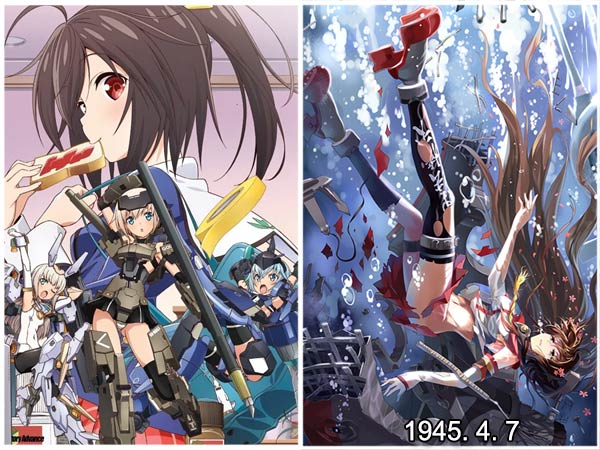Today is the 72nd anniversary of the sinking of the Battleship Yamato, which took place as the largest battleship in history was speeding towards Okinawa with the aim of beaching herself and becoming an unsinkable fortress to oppose the invading Allied forces. It’s interesting, the way World War II colors so much of the modern world, from the way the cities around J-List feel less or more cramped depending on whether they were bombed during the war, to this long, straight road in neighboring Ota City, which I learned used to be the runaway for a major airbase. The pop culture we consume is influenced by the war, too. Star Wars is massively colored by experience of the war as seen through war films, and the Klingons from Star Trek and the apes from Planet of the Apes are both based on Japanese soldiers, having been created by writers who fought against them during the war in Asia. Sometimes WWII history can come up in unexpected places. I recently re-watched The Wind Rises, I did some research into Miyazaki Hayao’s fascination with airplanes. It comes from his father’s business, Miyazaki Airplane, an airplane parts supplier that made rudders for A6M Zero fighter planes. It was quite surprising to find out that, indirectly, Miyazaki attacked Pearl Harbor. Anime is war!
The new anime season has begun, and since I’m lucky enough to have a job title of “professional anime watcher,” I’m working through the new shows so I can tell you what’s worth your time. This time I watched Frame Arms Girl, an interesting series funded by Kotobukiya to promote its line of plastic models and related figures. The show is about a girl named Ao who receives three mysterious figures which can walk and talk, and also do battle in her living room. Like Gundam Build Fighters, it’s a show designed to make you want to buy the models, and they do a good job of detailing the fun process of separating the parts from the plastic trees, and the frustration of losing a part you’re in the middle of assembling. I’m mainly interested in the series because of the shimapan, I mean the involvement of Fumikane Shimada, the illustrator and character designer who single-handedly created the modern “mecha musume” genre for a line of figures in the early 2000s, which lead to Sky Girls, Busou Shinki, Strike Witches, Girls und Panzer, and KanColle.
J-List has been selling our fun J-List Box basic snack, DX snack, toy/cultural and “ecchi” curated boxes for six months now, and our customers love them. There’s never any subscription to sign up for, just order the boxes you want and we’ll ship them on May 1st. Be warned, however, that they will be removed from the site when each box sells out. Browse the new J-List Box boxes all now!

















